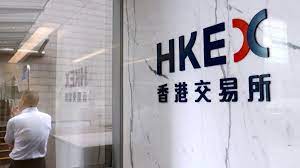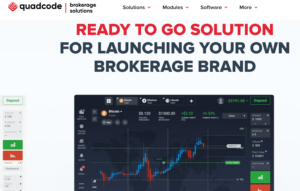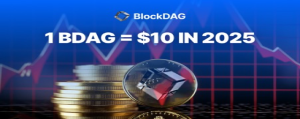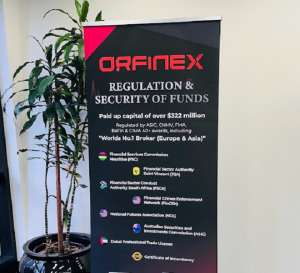Saudi Arabia halts oil production. Will this call into question the multi-asset direction and focus the mind on FX?
The price of crude oil has plummeted from $115 per barrel in the height of summer last year to a Brent Crude oil spot price of just $31.64 per barrel today, and oversupply in the form of unsold barrels blighting the horizon indicates that it is unlikely to recover soon. Today, Saudi Arabia, one of […]
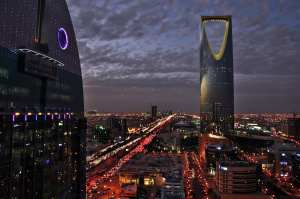
The price of crude oil has plummeted from $115 per barrel in the height of summer last year to a Brent Crude oil spot price of just $31.64 per barrel today, and oversupply in the form of unsold barrels blighting the horizon indicates that it is unlikely to recover soon.
Today, Saudi Arabia, one of the largest oil producers in the world, halted production of oil after talks with Russian authorities in Qatar.
At a time when many electronic trading firms have embraced the multi-asset ideology and are adding various commodities and stocks to their platforms to complement the initial FX instruments that they traditionally generated their revenue from, the bete noire of the entire commodities sector is, and looks set to continue to be, oil.
As reported by FinanceFeeds last week, oil prices could drop further, with some analysts suggesting that it may visit the $10 mark at some point in the near future. The world does not use as much oil as it did thirty years ago, and within a very short time, alternative fuels, including electricity which is not generated using fossil fuel-fired power stations have popped up in every aspect of engineering.
“My grandfather rode a camel, my father rode a camel, I drive a Mercedes, my son drives a Land Rover, his son will drive a Land Rover, but his son will ride a camel” – Sheikh Rashid Bin Said Al-Makhtoum.
Futures contracts for Brent crude actually appreciated slightly this morning. Contracts with April delivery rose to $35.26 per barrel, however a cessation of production and the mountain of oversupply show the real situation.
The discussions this morning in Doha, UAE, were held after more than 18 months of plummeting oil prices, triggered by Saudi Arabia’s strategy to keep production high, which in turn lowered prices, in a hope that this would drive out higher-cost producers.
The difficulty is that Saudi Arabia’s plan has largely been unsuccessful; and has not driven out the competition despite hammering the profits of every oil producer.

While communist Venezuela, a large oil exporter, has been particularly badly hit, even Saudi Arabia has been feeling the pain and has little or no back up plan. I can remember in 2005, I was at a private venue and was addressed by Sheikh Maktoum Hasher Maktoum Al Maktoum of Dubai, an oil magnate and an investor in international motorsport.
His opening speech at the launch of the A1 Grand Prix series at its inaugural event at Brands Hatch Racing Circuit in Kent, England, began not with the expected bravado of a motorsport enthusiast who lived for the finely tuned racing engines and smell of high-octane fuel, but by his quoting Sheikh Râshid bin Saîd Âl Makṫoum, who famously said “My grandfather rode a camel, my father rode a camel, I drive a Mercedes, my son drives a Land Rover, his son will drive a Land Rover, but his son will ride a camel.”
At that event, Sheikh Maktoum was referring to Sheikh Rashid’s concern that Dubai’s oil, which was discovered in 1966 and which began production in 1969, would run out within a few generations and that the OPEC countries had no back up plan whatsoever, and were totally reliant on the trade of crude oil with every other nation in the world, making it a single-asset region in terms of commodity trading and world business.
Indeed, today, there are formulae of motorsport in which the cars do not have internal combustion engines at all, and are indeed electric.
Sheikh Rashid’s predictions were on the right lines, however oil never actually ran out, and is a regenerating resource. The end result is roughly the same, however as instead of running out of oil the demand is very much less now than it was at the time that famous quote was coined, and the markets are bearing that out.
Last year Saudi Arabia had to approach the bond market for $27bn and it is now mulling an initial public offering of its state-owned oil company Saudi Aramco.
Electronic trading companies with their own proprietary platforms which are concentrating on true multi-asset product ranges, such as FXCM and Saxo Bank will likely be able to leverage the value of other, non-fuel related commodities and non-bank related company stock, however many firms during the course of last year which do not have a proprietary platform added Brent Crude to their range of instruments with a view to diversifying their risk profile, Pepperstone and AxiTrader being notable examples.
The question now is, with halted production in Saudi Arabia, what effect this will have on an already depleted value.
Image compliments of Nora.alsh2

